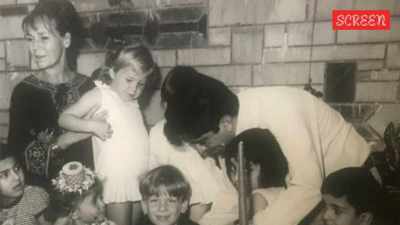Time out
An eternal tangoThe day after a film festival is as depressing and silent as death. Forstationed in the thick of off-screen reality, among...

An eternal tango
The day after a film festival is as depressing and silent as death. Forstationed in the thick of off-screen reality, among real people, real sorrowand real happiness, there seems to be a strange vacuum, something missing.Strangely enough, such a gap does not appear in the thick of cinematicexpression or any form of creative expression. Maybe because cinema unlikereality spans both the real and the fantastic, the factual and the dreamy.In life, imagination is something about which one cannot do much unless onefinds ways to express it. And the ways film-makers around the world find tovent their imagination is what enriches each festival. Voices seem to cryout from various countries: We are alive. We can speak.
Take this Portuguese film-ma-ker Joso Cesar Moreira whose Go-d8217;s Wedding wasscreened on the penultimate day of the festival. It is a comedy about amillionaire in his seventies who marries a young pr-incess. The woman cheatshim of his millions and vanishes. There are images of irreverence forpolitical and social institutions and the man is shown seeking solace infeminine beauty. While one wonders about further layers of meanings, if any,Moreira keeps his camera still to let the old man8217;s story unfold, taking itsown time. So characters eat, talk or stare and the camera waits silently forthem till they leave. There are bedroom scenes shown as they are, withoutany interference from the film-maker.
Another Portuguese film The Letter also tries to recreate life but inanother way. It has the film-maker literally narrate the story of abeautiful married woman who is courted by a famous pop star Pedro Almadusa.The pop star, one learns from the credits, has been enacted by the starhimself. And the narration is as that in a documentary, with the film-makeras the audible narrator. And what is one to make of a film-maker like AkiKaurismaki who chooses to make silent films in this era? His latest filmJuha screened at the Delhi festival is in black and white and withoutdialogues. Perhaps an attempt to make cinema more like life. Though life isneither black and white nor mute.
One American film one willy nilly watched using precious viewing time thatis meant for movies not otherwise screened is David Fincher8217;s Fight Cluband the film-maker8217;s imagination is again vibrant. The film with Brad Pitt,Fincher8217;s hero in his earlier film Seven, in the lead, is about men gettingtogether to engage in physical fighting. The idea is that there is no war orrevolution to motivate people to drive them out of themselves to fight.Hence fight to revive a dead instinct.
As Spanish maestro Pedro Almodovar whose retrospective was shown in thefestival has said, there are no new themes. There are only new ways to tellan old story. Whether it is Chen Kaige8217;s Farewell My Concubine which tellsChinese history through a story about opera artistes or it is Carlos Saura8217;sTango, where a story of love with its trappings of jealousy and pain isnarrated through the dance form.
The film-maker8217;s gaze encompasses newer and newer territories of life8217;shorizon and discovers ingenious ways to speak about them. He is so much incommand that even the grim truths of life are uttered amid laughter. Sotheir greatest tragedies are also often comedies8217;. Almodovar8217;s What Have IDone To Deserve This being an instance.
A festival which is not just one or two films but often 15 or 30 films,depending on the numbers one is able to watch for me it was 16 this year,always helps a person take the life that follows with a pinch of salt.Despite the very few good films that the festival could put together thisyear, if such a thing is achieved, then certainly one is justified to mournthe end of the festival.
- 01
- 02
- 03
- 04
- 05































